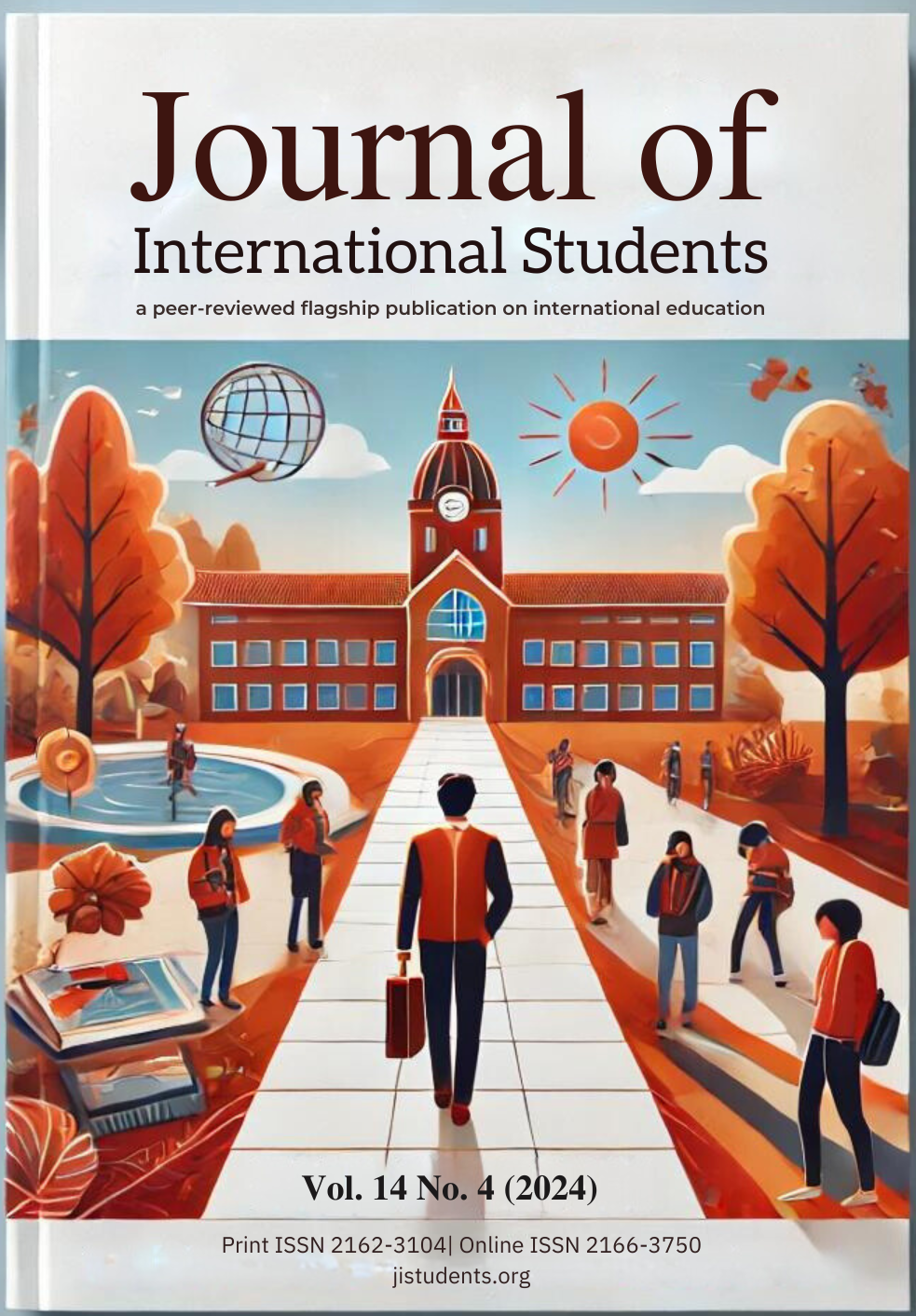Exploring the career development challenges and expectations of international students during the COVID-19 pandemic
DOI:
https://doi.org/10.32674/jis.v14i4.6511Keywords:
career outcome expectations, international students, covid-19 pandemic, social cognitive career theoryAbstract
In this study, the interrelations between locus of control, perceived social support, career decision self-efficacy, and career outcome expectations among international students in the United States during the COVID-19 pandemic was investigated through the lens of Social Cognitive Career Theory (SCCT). Based on structural equation modeling, data from 194 international students at a large Midwestern research institution in the United States. revealed that career decision self-efficacy plays a significant mediating role in the relationships between age, locus of control, and career outcome expectations. These results provide valuable insights into the career development process of international students during a global pandemic. The implications of these findings and directions for future research are thoroughly discussed.
Downloads
Published
Issue
Section
Categories
License
Copyright (c) 2024 Journal of International Students

This work is licensed under a Creative Commons Attribution-NonCommercial-NoDerivatives 4.0 International License.
All published articles are licensed under a Creative Commons Attribution-NonCommercial-NoDerivs 4.0 Unported License.















